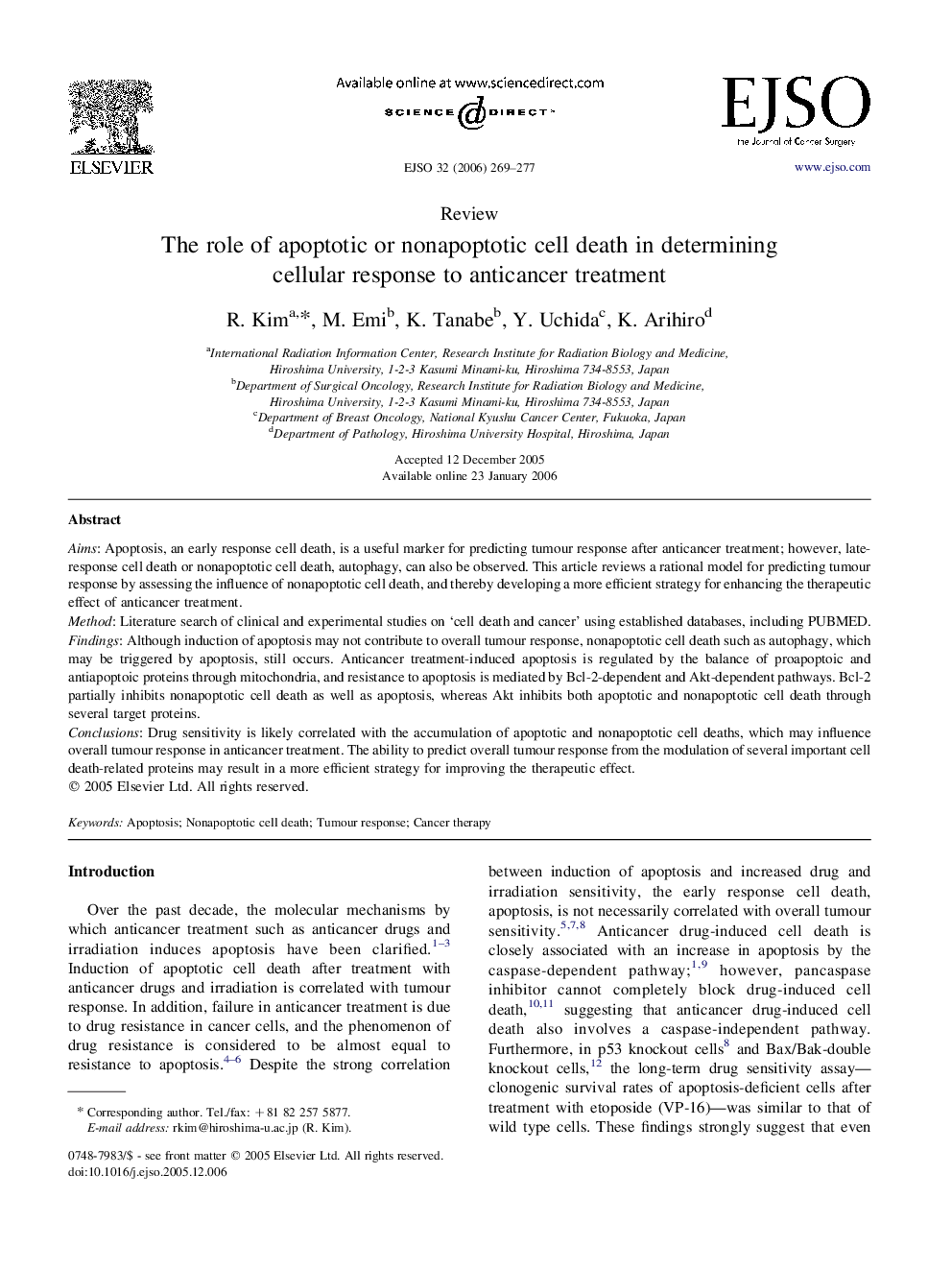| Article ID | Journal | Published Year | Pages | File Type |
|---|---|---|---|---|
| 3987900 | European Journal of Surgical Oncology (EJSO) | 2006 | 9 Pages |
AimsApoptosis, an early response cell death, is a useful marker for predicting tumour response after anticancer treatment; however, late-response cell death or nonapoptotic cell death, autophagy, can also be observed. This article reviews a rational model for predicting tumour response by assessing the influence of nonapoptotic cell death, and thereby developing a more efficient strategy for enhancing the therapeutic effect of anticancer treatment.MethodLiterature search of clinical and experimental studies on ‘cell death and cancer’ using established databases, including PUBMED.FindingsAlthough induction of apoptosis may not contribute to overall tumour response, nonapoptotic cell death such as autophagy, which may be triggered by apoptosis, still occurs. Anticancer treatment-induced apoptosis is regulated by the balance of proapoptoic and antiapoptoic proteins through mitochondria, and resistance to apoptosis is mediated by Bcl-2-dependent and Akt-dependent pathways. Bcl-2 partially inhibits nonapoptotic cell death as well as apoptosis, whereas Akt inhibits both apoptotic and nonapoptotic cell death through several target proteins.ConclusionsDrug sensitivity is likely correlated with the accumulation of apoptotic and nonapoptotic cell deaths, which may influence overall tumour response in anticancer treatment. The ability to predict overall tumour response from the modulation of several important cell death-related proteins may result in a more efficient strategy for improving the therapeutic effect.
